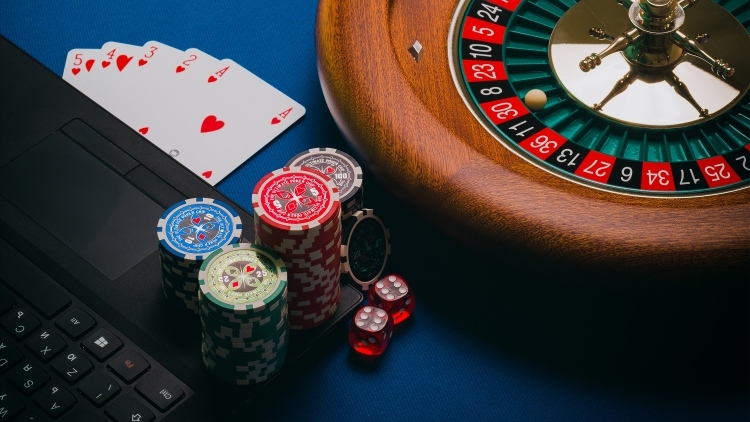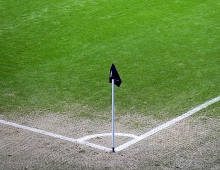
The Warning Signs Of A Sports Betting Problem
Post summary:
- You'll learn the eight signs that you're addicted to betting
- Whether you have one of those signs
- Tips and advice for seeking treatment if necessary
For most, betting is either a few hours of fun. It could be at the slots, a weekly card game with friends or if you're a professional sports bettor - a way of obtaining big wins by betting on the outcome of sports results.
But for some, there's a dark side: an addiction that leads to personal and financial ruin.
The National Council on Problem Gambling reports about 1 per cent of the U.S. adult population, or 2 million people, meet pathological betting criteria.
"The increasing preoccupation with gambling, a need to bet more money more frequently, restlessness or irritability when attempting to stop, 'chasing' losses, and loss of control manifested by continuation of the gambling behaviour despite mounting, serious, negative consequences."
Potential problems from betting go beyond financial.
Untreated addiction can lead to legal issues, family and relationship issues, job loss, and even an increased risk of suicide.
Eight signs you've got a betting problem
1. You simply can't stop.
Just as an experienced poker player knows when to "hold 'em or fold 'em," those who gamble for fun limit themselves and their bets.
Compulsive bettors struggle with both the time and money they're spending—more time watching sports results, in bookmakers’ shops or adding funds to their online wallets.
It takes over their lives as they find selves constantly waging new bets. Those who try to quit simply cannot stop.
2. You are betting with money you can't afford to lose.
Problem gamblers don't stop with money they set aside for the occasional bet.
They begin to use money budgeted for bills, their savings and monthly salary.
For some, it becomes so bad they start to borrow money - first from friends and family, and then from banks and loan companies, getting themselves further into debt.
3. Your bets go beyond entertainment.
Recreational gamblers play for fun and spend a few dollars, or euro's here and there to have a good time.
Professional bettors place big bets or use betting promotions to increase their winnings, knowing when not to bet.
But for betting addicts, this is not true - they place bets for reasons other than entertainment, often utilising betting as a form of escapism from a problem in their daily lives.
This escapism makes it harder for addicts to give up - whatever issues you face; betting is not the solution for it.
4. You attempt to recover losses by betting more and making bigger bets.
All bettors try to win back money to replace losses.
The issue with problem gamblers is that they do not realise that the more they do this, the more they will inevitably lose.
Bettors who are addicted to betting see more betting as the solution to financial losses rather than what it is – throwing good money after bad.
5. You gamble with more money and set higher bets.
Like many addictions, pathological betting starts small. But those early rushes they experience (including even some betting wins) soon leads to them setting higher stakes and pushing to new limits.
They maintain that rush; they gamble with more money and inevitably will begin to lose and lose big.
6. You go to extremes to obtain more money to gamble.
Pathological gamblers don't stop betting when their bank account runs out of funds.
Instead, they find more money by borrowing more or worse, resorting to theft, forgery, or other crimes to feed their habit.
7. Only the next bet matters to you
Problem gamblers allow their habit to take priority over other parts of their lives.
A betting addict might bet online at work rather than focus on their jobs. They may withdraw from their personal lives by spending less time with their partners or families if they have one.
Watching a child's football game or miss time at work to hit the casino. Ultimately their relationships deteriorate at the expense of their habit.
8. Betting negatively affects your emotions.
Whilst betting can be an exhilarating and fun experience; addicts might experience emotions highlighting a problem, including:
- Frustration when you've tried to quit and failed
- Feelings of remorse, especially when chasing "losses."
- A reduction in ambition
- An urge to celebrate an unrelated event by placing a bet
- Loss of control results in continuing betting behaviour despite mounting severe negative consequences
In addition to these warning signs, test if you're addicted to betting on the Gamblers Anonymous website.
If you believe you're suffering these signs of betting addiction, there are steps to help you beat your habit.
Taking early action is the key to keeping your job, relationships and finances.
How to treat a betting addiction
Admit to yourself that you have a problem
Betting is like any addiction: The first step is to admit you have a problem.
Experts believe treatment won't be as effective if the addict refuses to take this crucial first step. By first accepting the problem means you're ready to make an effort to stop.
Get the right support.
Betting addictions are impossible to battle alone. Your family and friends can be a good source of support. Gamblers Anonymous helps addicts share their experiences and find support to keep going and maintaining treatment.
Avoid the temptation to bet again.
Addicts must avoid environments that lead to betting. Stay away from casinos, sports events, online gaming or anything else that might remind or tempt you.
Let someone else control your finances.
Take away sources for financing your habit by giving your spouse or someone you implicitly trust to take control of your money.
If you're using credit cards to fund your pattern, cut them up and close the accounts.
Let this person budget your finances so that any money you have left is spent wisely.
Replace betting with a positive hobby
Find a replacement activity or hobby. Whether it's running, fishing, or going to the movies, find something to take the place of betting.
But do not engage in watching sporting events or surf for long periods online. You do not want to be in an environment where you can lapse into placing another bet.
Seek professional help
Treatment for betting addiction varies case-by-case. There is no shame in seeking additional professional help. Up to 70 per cent of those with gambling addictions may have other psychiatric or substance abuse problems, making further treatment necessary.
Certified Gambling Counselling is available through the National Council on Problem Gambling – often recommended in addition to Gamblers Anonymous and your family support.
A betting addiction is self-destructive to both you and those close to you.
It can begin with a small €2 win on the horses and exacerbate to thousands betting on high stakes sports accumulators.
Whilst there's nothing wrong with the occasional punt, keep an eye out for the signs when it starts negatively impacting your life.
Then take control of the problem before it takes control of you.
Você também pode gostar
Categorias
- Recente
- Tutoriais
- Bookmakers
- Tipsters and tipping sites
- Arbitrage and betting tools
- Transfer news
- Football in general
- Betting in general
- International Football Tournaments
- Sports
posts populares
 How to spot a football fix?
How to spot a football fix?
![Statistics Tool [Tutorial 4] How to work on the Backtesting feature?](/newsImages/89x89/ana-graph-1604054958.jpg) Statistics Tool [Tutorial 4] How to work on the Backtesting feature?
Statistics Tool [Tutorial 4] How to work on the Backtesting feature?
![Spreadsheet Features [Tutorial 3]](/newsImages/89x89/mainpic-1593606948.png) Spreadsheet Features [Tutorial 3]
Spreadsheet Features [Tutorial 3]
![Notifications Backtesting [Tutorial 2] - Unique feature that nobody has](/newsImages/89x89/backtestss-1586000233.png) Notifications Backtesting [Tutorial 2] - Unique feature that nobody has
Notifications Backtesting [Tutorial 2] - Unique feature that nobody has






